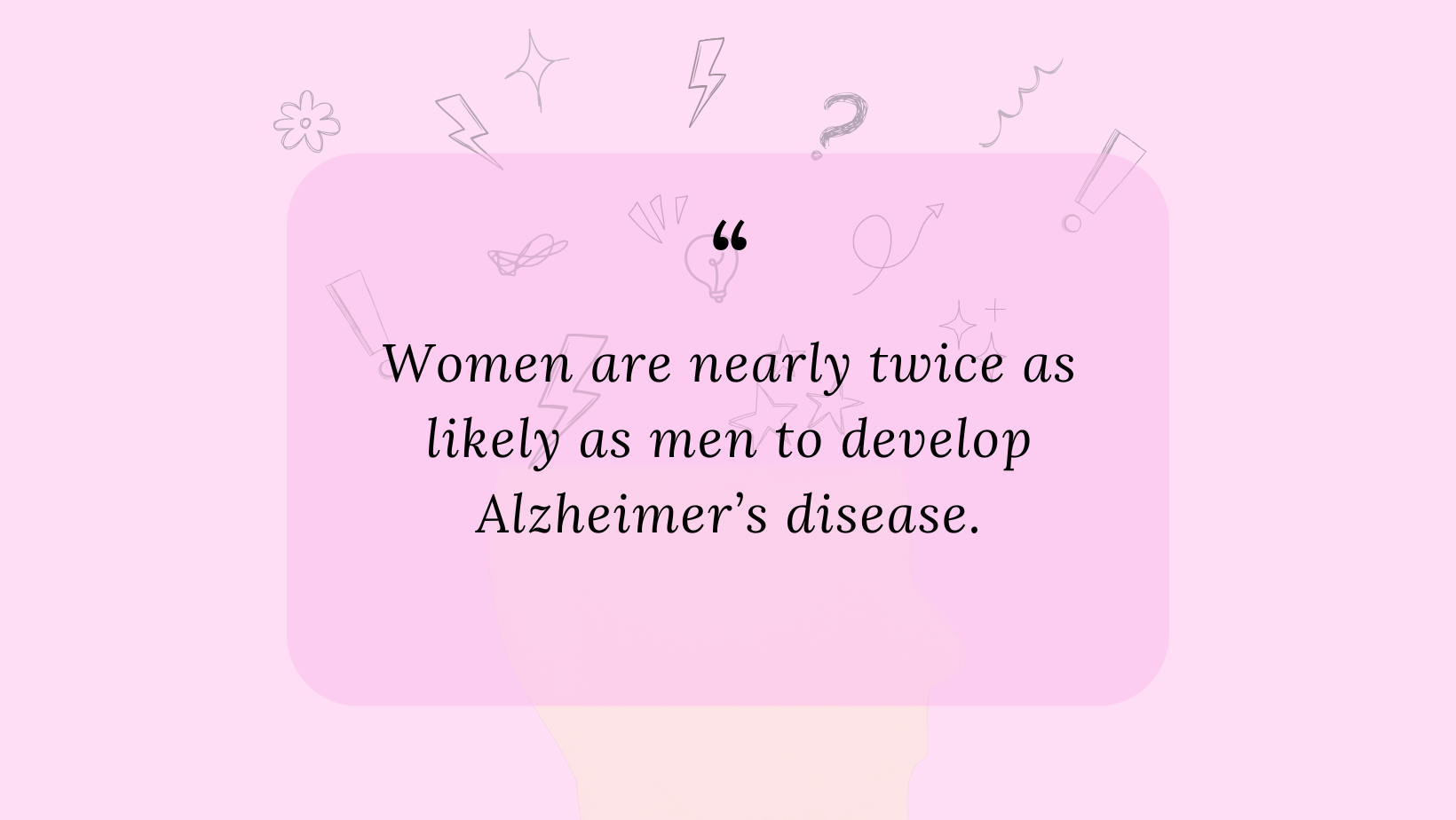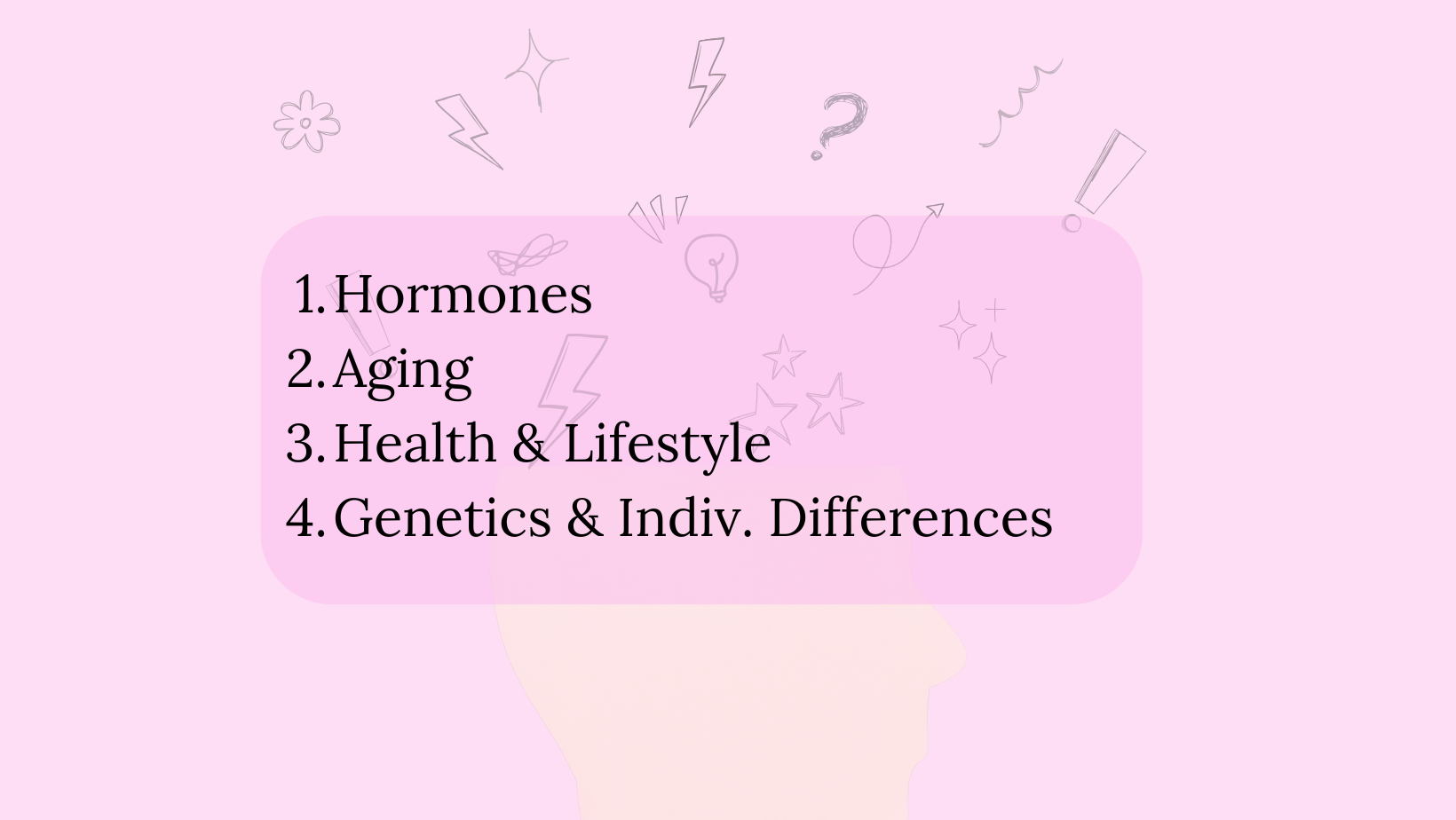Inflammation & Brain Health: Friend and Foe

When you hear the word inflammation, you probably think of something harmful. Headaches, swollen joints, fatigue, all things we’d rather avoid. But in your brain, inflammation isn’t always the enemy. It can be both protector and destroyer, depending on how long it sticks around.
For women, who experience unique hormonal transitions, from puberty to pregnancy, postpartum, perimenopause, and beyond this balance is especially relevant. Hormones like estrogen directly influence how your brain manages inflammation, which partly explains why shifts in hormones can affect memory, mood, and focus.
What is Inflammation in the Brain?
Inflammation is the body’s immune system at work. In the brain, the key players are microglia and astrocytes:
- Microglia are the brain’s resident immune cells. They detect problems, clear away debris, and help defend against infections.
- Astrocytes provide structural and metabolic support for neurons, regulate blood flow, and help maintain the blood–brain barrier.
When briefly activated, these cells support repair and maintain stability in the brain’s environment. But if they remain activated for too long, they start producing high levels of inflammatory molecules that damage neurons instead of protecting them.
Inflammation in the Brain: Friend and Foe
Beneficial Effects (Friend)
Acute neuroinflammation plays a vital role in:
- Defending against injury and infection by clearing debris and fighting pathogens.
- Removing damaged cells and protein deposits that could interfere with brain function.
- Supporting neuroplasticity, the brain’s ability to rewire itself.
A simple example is a child learning to ride a bike. Every fall and retry requires the brain to strengthen new neural connections for balance and coordination. Inflammation, in small bursts, helps microglia and astrocytes support these changes, allowing new skills to “stick.” And this process continues across life — whether you’re learning a language in your 40s or taking up dance in your 60s.
Detrimental Effects (Foe)
The problem arises when inflammation doesn’t shut down. Chronic activation of microglia and astrocytes causes the constant release of pro-inflammatory cytokines and reactive molecules, which damage neurons and disrupt communication between brain cells.
Consequences of persistent brain inflammation include:
- Accelerated cognitive decline and memory loss.
- Disruption of the blood–brain barrier, especially when peripheral inflammation (measured by markers like CRP and IL-6) is elevated.
- Increased risk of neurodegenerative diseases such as Alzheimer’s and Parkinson’s — conditions that disproportionately affect women.

Like a smoke alarm that never stops ringing, chronic inflammation wears you down. What starts as a protective response turns into a constant stress signal that accelerates aging.
What Shapes How the Brain Handles Inflammation?

Not everyone’s brain responds to inflammation in the same way. Some people recover quickly from short-term immune responses, while others experience low-grade, chronic inflammation that slowly harms neurons. Several key factors influence this balance.
For women, hormones play a central role. Estrogen has strong anti-inflammatory effects in the brain, helping regulate microglia and protect neurons. When estrogen levels drop during perimenopause and menopause, this shield weakens, which partly explains why brain fog and memory slips are common at this stage of life. Pregnancy and postpartum also bring hormonal shifts that temporarily alter the brain’s immune activity.
Aging adds another layer of risk. As we grow older, microglia are more likely to remain in a “switched on” state, releasing inflammatory molecules even without clear triggers. At the same time, astrocytes become less efficient at supporting neurons and maintaining the blood–brain barrier, making the brain more vulnerable.
Health and lifestyle also matter. Conditions like obesity, diabetes, or cardiovascular disease raise inflammation in the body, which spills over into the brain. Poor sleep and chronic stress push the brain’s immune system into overdrive, while exercise and nutrient-dense foods like omega-3s and colorful vegetables help regulate inflammation. The gut microbiome plays a role, too: a healthy, diverse gut community calms inflammation, while imbalances can make it worse.
Finally, genetics and individual differences shape how resilient each person’s brain is. Some people carry genetic variants that make them more prone to neuroinflammation and conditions like Alzheimer’s, while others have stronger natural regulation.
For women, these factors often overlap — hormonal changes, stress, sleep disruption, and metabolic shifts can all interact, amplifying one another. This is why supporting brain health with everyday habits becomes especially important during midlife and beyond.
Supporting a Healthy Balance
The good news is that while we can’t control every factor — like aging or genetics — we do have influence over many of the day-to-day choices that tip the scale toward balance or imbalance. Lifestyle, nutrition, and self-care habits play a powerful role in shaping whether inflammation works for us or against us.
Practical ways to support brain health include:
- Nutrition: Omega-3 fatty acids, antioxidant-rich fruits and vegetables, and dietary fiber help modulate inflammation.
- Sleep and stress management: Both are critical for allowing the brain to reset inflammatory responses.
- Regular exercise: Physical activity produces short-term, beneficial inflammation that primes the brain for resilience.
- Lifelong learning: Activities like reading, problem-solving, or practicing new skills enhance neuroplasticity, keeping the brain adaptable at every age.
Want to put these tips into practice? Download your free Brain Health Guide with a printable bingo card to help you build habits that protect your brain.

The Takeaway
Inflammation in the brain is both a friend and a foe. In small, controlled bursts, it supports healing, clears away damage, and fuels the neuroplasticity that helps us learn and adapt throughout life. But when inflammation becomes chronic, it shifts from being protective to harmful, accelerating brain aging and raising the risk of diseases like Alzheimer’s and Parkinson’s. For women, especially during times of hormonal transition, keeping this balance in check is essential for protecting memory, focus, and long-term brain health.
